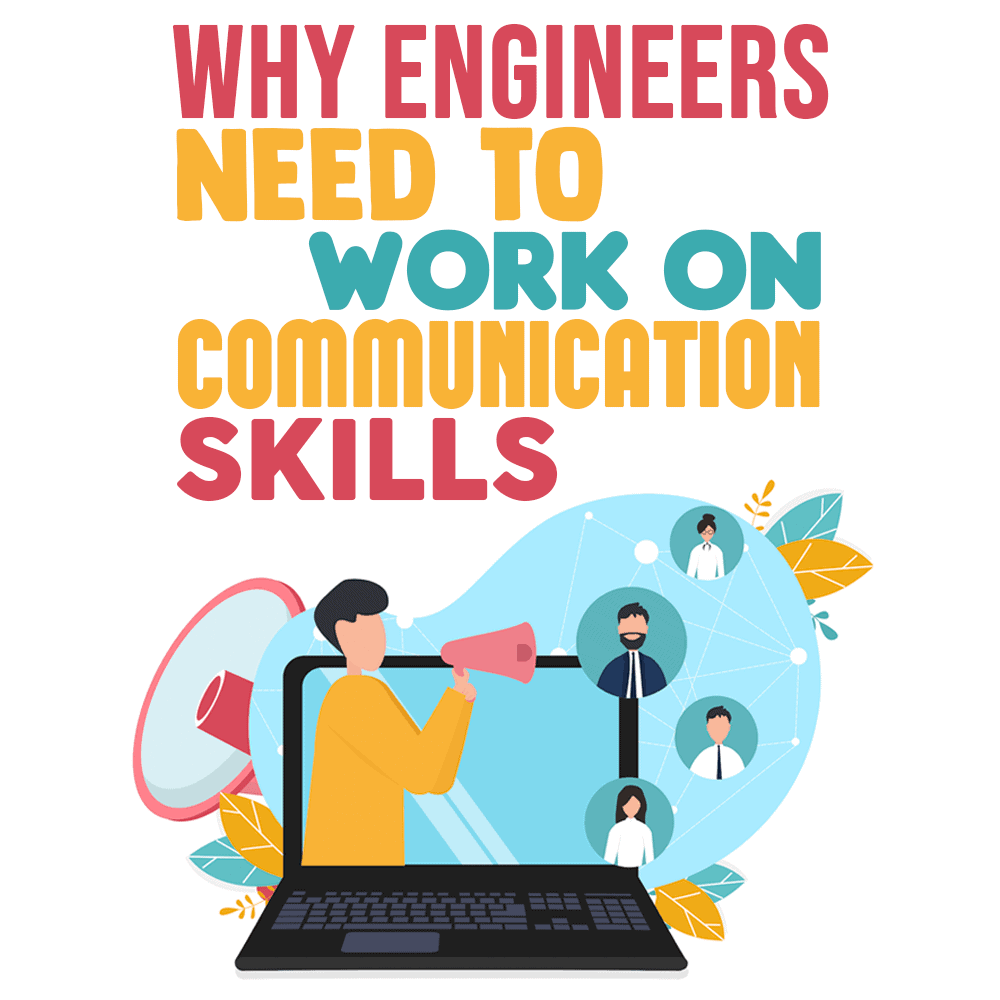
It doesn’t have to be that way. Just because they didn’t teach us about effective communication in engineering school, it doesn’t mean we can’t learn it on our own.
You’re probably wondering why you should invest the time to learn how to be a better speaker. You’re thinking that time would be better spent learning another programming language.
Let me give you some reasons why learning how to be a better communicator is worth your while.
Better Speakers Make More Money
Don’t believe me? Think for a moment about how many programmers there are in the world. According to Evans Data, there were 23.9 million programmers in 2019. Now think about how many of those programmers have developed a following; you could probably count them on both hands. What separates these from the rest? Why do some engineers seem to get ahead while others stay behind?
Higher intelligence is no guarantee of a successful career. Yes, you absolutely have to understand your subject matter, but it’s not always the smartest engineers who command the highest salaries. I’ve known a few engineers in my time, and I’m sure you have too, who were extremely smart but never really seemed to get ahead.
At the first company I worked for right out of university, there was a programmer who had been there for several years. When I asked one of his co-workers why that particular programmer never got promoted the answer was “He doesn’t interview well.” He clearly knew the software well, and he had been there long enough to demonstrate his skill set. And yet he couldn’t ascend to the next level because his ability to communicate with others was not up to par.
Engineers who can combine their technical skills with an ability to speak well are the ones who have a higher earning potential. Just watch any of the Clean Coders videos by “Uncle Bob” Martin, and you’ll see why he is so sought after. Did he write a great book about solid software principles? Absolutely. Does he have decades of experience? Of course. But so do a lot of other engineers I’ve worked with, and none of them get paid like “Uncle Bob.”
Some programmers think that learning how to speak well is somehow beneath them as if good communication is a talent that only applies to salespeople. Some will say they don’t need to communicate better because they are not willing to “play office politics.” They regard engineers who speak well with a bit of disdain, and consider the others to be suck-ups or sellouts.
You can think that if you want, but from what I’ve seen, engineers who are also good speakers never have to worry about sending out their résumés. Engineers who can effectively communicate their ideas create more opportunities for themselves. You already work hard; why not add good communication to your skill set, and increase your chances of a better career?
You Learn Faster by Teaching
When I was working in technical support, I often had to explain to a customer why the software had failed. As a result, I had to learn about the lower-level workings of the software. I learned how the endpoints transmitted information to the main server and how to decrypt the information files and examine their contents.
None of this information was in the technical documentation. A lot of it was tribal knowledge that I had to pry from the developers themselves.
I did all this because I wanted to educate the customer as much as possible. Of course the customer didn’t have to know as much as I did, but I wanted to be prepared in case they asked me more probing questions. Preparing for the customer forced me to learn more about the software than I would have normally.

Imagine that you petition your boss for a new Integrated Development Environment (IDE). The request is granted, and you get your new IDE installed on your computer. You are happily writing and debugging code when your boss comes to you with a request. She asks you to prepare a quick presentation for the rest of the team on how to best use that new IDE.
Would you wing it? Would you just project your screen before the group and start clicking buttons on the IDE interface without explaining what you’re doing or why? I think not.
I think you would take the time to prepare a handful of the most common scenarios where you would use the tool. Then you would probably walk through each scenario, carefully explaining what you are doing and why it’s relevant. You might even provide a slide deck for the group to use as a reference.
In preparing that presentation, you would get a much better understanding of the tool and how it works. You’d become familiar with the tool’s benefits and shortcomings. In short, you would become the subject matter expert. And all because you had to teach someone else what you know. So the next time you are called upon to speak about a subject, don’t complain; be thankful. You are about to become an expert.
The World Needs To Hear Your Message
As an engineer, it’s your job to solve the world’s problems. Never underestimate just how impactful your contribution can be. Somewhere along the way, you will have an idea that could change lives.
Perhaps it won’t be the cure for cancer, but at some point in your career, you will acquire some insight that could potentially make life better for others.
You might discover a bug in a piece of software that could cause an autonomous vehicle to crash without warning. You might discover a vulnerability that could compromise a bank’s security. Or, you might discover a way to reduce the time it takes to test a piece of software so it takes minutes instead of hours.
Whatever the case, you will have an important message to share with the world.
However, it’s not enough to have a great idea. Remember that good ideas are a dime a dozen. Good communication is not just about presenting information; it’s about connecting with your audience.
Your message is important, and you have to present it in such a way that your audience will buy into it. That’s why you need to hone your speaking skills. If you can’t get people to back your idea, it might as well be non-existent.
Garrett Gunderson, author of Killing Sacred Cows, defines the value you bring to the world as a function of your mental capital and your relationship capital. You can’t reach success on your own. You need to build relationships with the people who can help you spread your message. And you can’t build relationships without good communication skills.
So do yourself a favor. Do the world a favor. Learn how to be a good communicator. Because you have a message to share, and the world needs to hear it.
Better Communicators Get Better Benefits
It’s not exactly the same as getting a raise, but don’t discount the benefit of having your employer pay for your training. And you are not likely to get your employer to pay for your training if you can’t request it in terms that will benefit them. As Costa Lamprou says in his article:
… [I]f your employer decides to invest in your skills, it will be beneficial for both you and them. Present this fact to them in a manner that highlights the advantages involved for them.

One word of caution here: This is not about manipulating people. Good communicators should never use their power just to get what they want out of others. I think Danila Petrova hit the nail on the head when she wrote this:
It’s about listening to the world around you and responding appropriately to the benefit of your company and colleagues alike.
Yes, being a good communicator can help you climb that corporate ladder, but you don’t want to use your co-workers as rungs on the ladder.
Don’t Be Afraid of Communication
I’m going to encourage you to hone your communication skills. It’s going to be very uncomfortable for you if you’re not already used to it, but that can be overcome with practice. As engineers, we don’t often think about how we can make a difference because we assume that we will always be behind the scenes.
Here’s a way that even those of us behind the scenes can make a difference: Learn how to communicate so you can share your knowledge. You will benefit from it because it will force you to become a subject matter expert. Those around you will benefit by learning a new way of doing things. It may not shift the planet on its axis, but it will definitely open up a whole new world for you.
